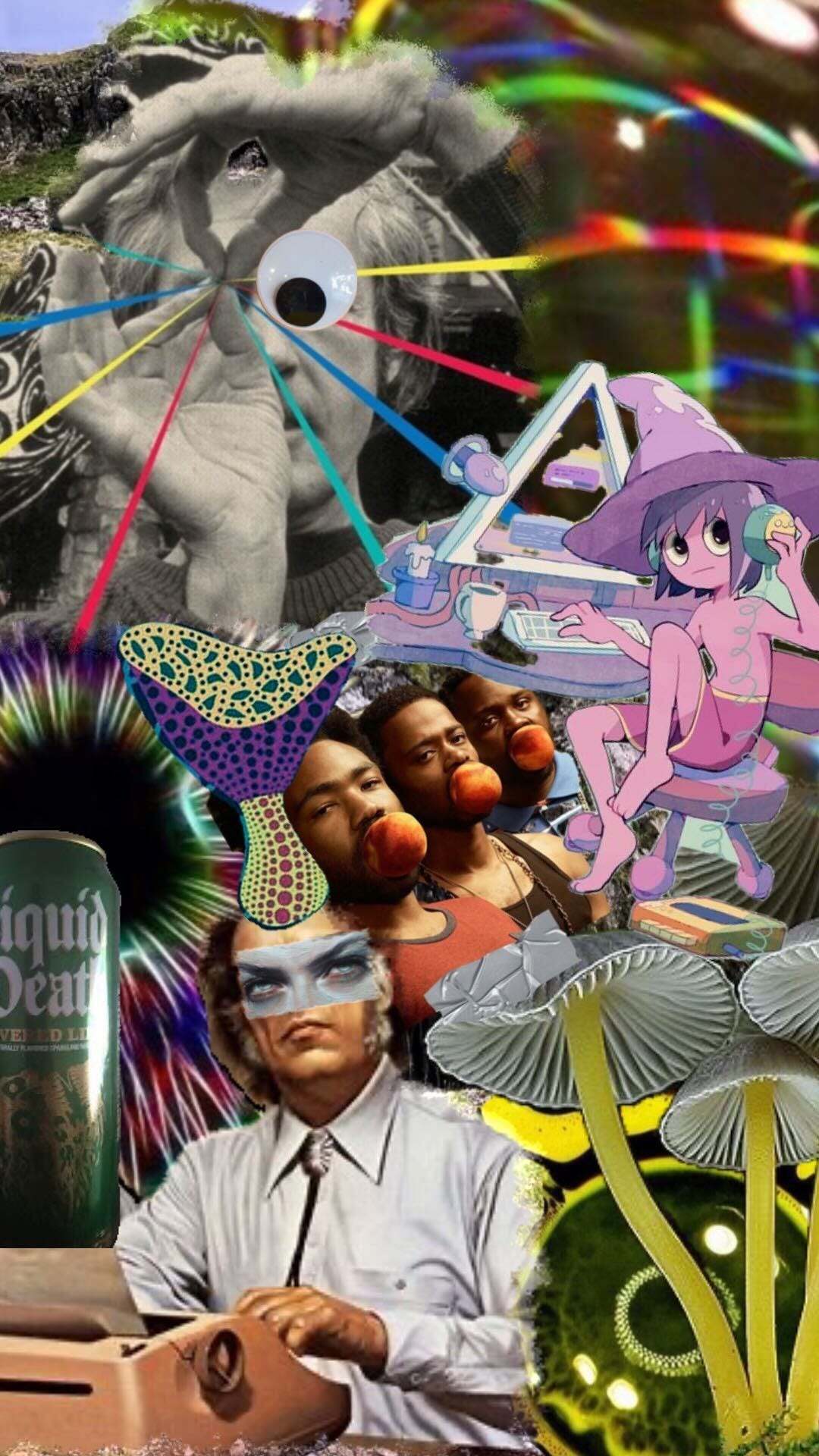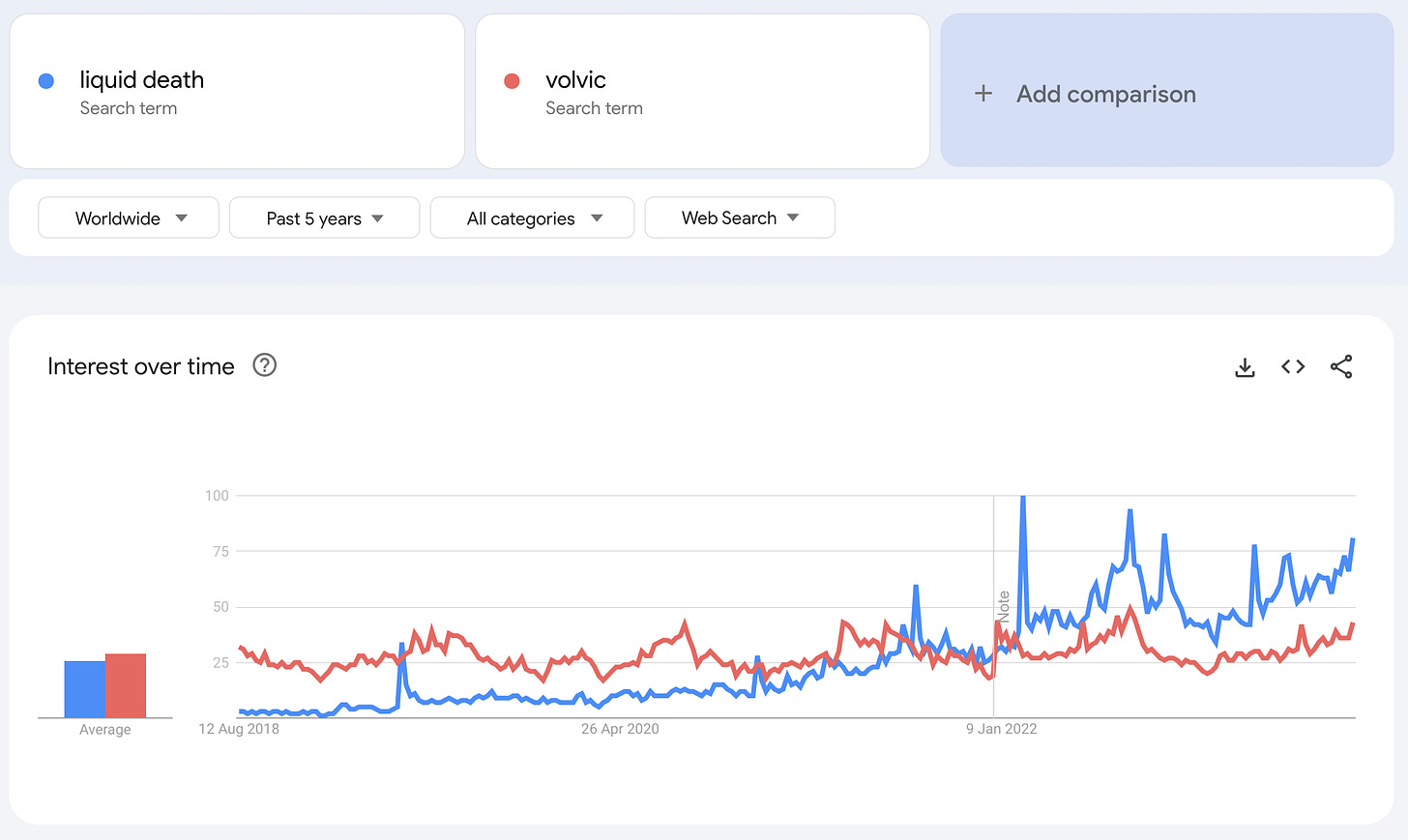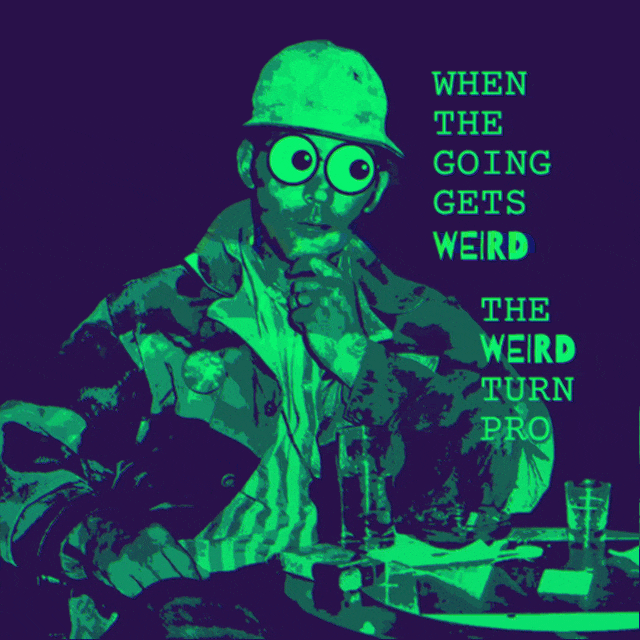The world is a profoundly weird place. The mind is a profoundly strange thing. Reality, in many ways, is chaos.
There are, broadly, two cultural responses to all this chaotic weirdness:
The kind of bland aesthetic conformity Alex Murrell documents in his article, The age of average. Endless Edison bulbs as a coping mechanism. (See also: The Mediocricene)
A rejection of the neatly ordered, rational-materialist vision of the world, and an unruly opening towards the weird, the wondrous, and the mystical - I explored this in a recent article for MediaCat.
There’s the weirdness out there (culture, geopolitics, black holes etc.) and the weirdness in here (consciousness, personality, dreams etc.) I’m convinced we must accept and investigate the former, and joyfully embrace the latter. Of course, it’s all interconnected anyway.
"You must have chaos within you to give birth to a dancing star." - Nietzsche
For me, weirdness is about refusing to blindly conform, owning your idiosyncrasies, and being curious about all the things we still can’t explain.
I’m convinced “weirdness is inherently good, inherently interesting, inherently meaningful”.
It’s authenticity on acid.
Fitting in vs standing out
In our personal lives, in pop culture, and in the world of brands, there’s a continual tension: fit in, or stand out. Meet expectations, or subvert them.
If you’re a TV commissioner, for instance, weirdness can feel unpredictable and loaded with a sense of risk; when beautifully weird shows like Atlanta or Midnight Gospel emerge seemingly uncompromised, it feels thrillingly rare.
For brands, being “weird” can mean differentiation (meeting a need in a way nobody else has imagined), or distinctiveness (looking, sounding, and feeling a particular way). Weirdness, in positioning and communications, is effective and profitable. The body of evidence around this is big and compelling. But the human instinct for blending in with our group is powerful; the people in charge of most brands choose to mirror category codes rather than upend them. Beyond picking a different colour scheme, weirdness feels scary.
But the rewards for those who find and embrace what makes them weird are obvious. Intentional weirdness is how a young upstart like Liquid Death becomes more salient than an 85-year-old competitor.
Every brand must ultimately weird the normal or normalise the weird.
For you, an individual human with a unique combination of genes and experiences, identifying and proudly embodying your own particular brand of weirdness can help you feel more satisfied, be more creative, and stand out in a challenging job market.
But there will always be people who feel threatened by this, people who will tell you to tone it down and maybe grow up. Often this starts at school, and continues at work.
As Olga Khazan writes in The Atlantic:
“Trying to think about your weirdness in a positive way — a process called cognitive reappraisal — can help you cope with the adversity that often comes with being an outlier. Reframing what makes you weird as being what gives you strength can, ultimately, make you happier.”
I’m here to tell you that it’s OK to be odd. In fact, it’s the way. Resisting the forces of conformity isn’t always easy, but it’s your path to liberation. It’s how you’ll make the biggest ripples in reality.
In the words of artist and writer stevexoh:
“What happens if we allow ourselves to gently let go of the ought tos and should haves of our parental/carer influences, and the society/culture we find ourselves in, and move towards spontaneous self expression?”
Personally, I owe much of this attitude to my mum - a textile artist and published author - who’s shown me it’s possible to live an authentic, creative life. I realise how lucky that makes me.
I’ve also been influenced by great people like Rob Estreitinho and Amy Kean to see weirdness as a superpower. Experiences with psychedelics have also played their part 👀
Weirdness and the unknown
So, weirdness is partly about non-conformism. It’s about wild, imaginative thinking, and unfiltered self-expression. But there’s more to weirdness than all that…
Weirdness isn’t just about being defiantly peculiar.
Weirdness is a feature of reality, like beauty, or maybe even like gravity. Spend 20 minutes reading about quantum weirdness - I dare you.
In some fundamental way, weirdness is about the unknown.
For Mark Fisher, author of The Weird and the Eerie, the weird was a kind of "outside" presence or something that shouldn’t belong in a particular setting; something that doesn't fit our standard understanding of reality.
This reminds me of a quote generally attributed to Isaac Asimov:
“The most exciting phrase in science is not ‘Eureka!’ but ‘That’s funny…’”
If necessity is the mother of invention, weirdness is the mother of discovery. To advance knowledge and break new ground, we should run towards weirdness wherever we find it.
Weirdness is collective
Whilst I happily identify as weird, and I’m encouraging you to do the same, I do recognise that there’s something a little neoliberal about the notion that we must all be our own islands of difference. One moment, it’s “own it, dude”, the next moment, it’s “here’s my manifesto for a hyperindividualist dystopia.”
Let me be clear - I believe weirdness is most powerful when we make space for it in collaborative contexts. That’s why I get people sketching dreams in workshops and why I’m on a lifelong mission to find the others. When different weird perspectives collide, creativity erupts.
Weirdness is hungry - it must feast on the weird art and weird ideas of others, lest it withers and retreats. I hope this newsletter will become a source of weird nourishment for those who need it.









T H A N K S J O E L ! ! ! ! ! ! ! !
A perfect start:
"The world is a profoundly weird place...
...The mind is a profoundly strange thing."
Like u said, like Rob Estreitinho said: WEIRDNESS IS A SUPER POWER.
Hope to read u soon.
a n d r é s g o l d s w o r t h y .